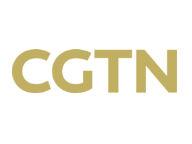Faculty News
—
Professor Ari Ginsberg discusses how WeWork's struggles have impacted the perception of unicorns
—

Excerpt from CGTN -- “'This whole kind of…fantasy about ‘we’ and ‘community’…it was just thrown in their faces. People have a sense of fairness: if the CEO suffers together with them, you know we all went under, you know you stuck with the troops, we all went under. He didn’t stick with the troops.'”
Faculty News
—

Excerpt from CGTN -- “'This whole kind of…fantasy about ‘we’ and ‘community’…it was just thrown in their faces. People have a sense of fairness: if the CEO suffers together with them, you know we all went under, you know you stuck with the troops, we all went under. He didn’t stick with the troops.'”























